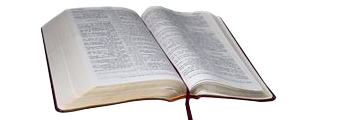
CHURCH OF THE BRETHREN NETWORK
Continuing the work of Jesus : Peacefully ~ Simply ~ Together
UNOFFICIAL WEBSITE OF THE CHURCH OF THE BRETHREN

 |
CHURCH OF THE BRETHREN NETWORK Continuing the work of Jesus : Peacefully ~ Simply ~ Together UNOFFICIAL WEBSITE OF THE CHURCH OF THE BRETHREN |
 |

John Calvin
Born: 1509 ~ Noyon, FranceJean Cauvin is better known in the Latin form of Calvin. He was educated for the priesthood at College de la Marche and College de Montaigue which are branches of the University of Paris. He came to appreciate humanism and proved his understandings of it by publishing a commentary on Seneca's "De Clementia" in 1532. After a personal religious experience, he studied and began writing his own theology. This forced him to travel frequently so as to evade local authorities because of his agreement with the current reform movements. In 1536, he published "Institutes of the Christian Religion" which gain him notice as a serious Protestant thinker, and is regarded today as a masterpiece of Reformation literature. While in Geneva, he became active in the local reform movement and was on friendly terms with the city government in spite of constant opposition from the Catholic army of the Duke of Savoy, and the local Perrin family. Calvin devoted much of his energy to supporting hospitals, improving sewage systems, and particularly the installation of railings on high buildings to protect children. He developed a municipal school for children, and in 1559 founded the Geneva Academy with Theodore Beza as its first rector.
He was separated from Martin Luther by a generation and likewise was the tone of his style. Luther, son of a miner, was raised in a peasants dwellings and this humble upbringing continued in his speech that was eloquent by its earthiness, humor, and even rudeness. Calvin, son of a lawyer, was raised in the French middle-class and his speech was classical - speaking always to the educated even when preaching to a mixed audience. He used logic and system to persuade instead of the force of exhortation. But his greatest contribution was the gift of his wisdom to church life writing hymns, Biblical commentaries, letters to other reformers, a catechism, in addition to widely circulated sermons. He tirelessly encouraged the use of the French language during worship, and some historians believe that his numerous writings in French and the insistence of its use in church was a significant contribution to its development as a modern language. John Calvin took Geneva from religious obscurity and eventually turned it into a Protestant Rome. Although his religious passions were robust, his health was always frail, and subject to chronic asthma and frequent indigestion. He died in 1564, and was buried in Geneva in an unmarked grave.
John Calvin believed that all life centered on the Bible. It was the final arbiter of life's questions, and he endeavored to lessen outside influences such as determinism and speculation. He explained theology in simple ways using his monumental work, "Institutes of the Christian Religion." It contained four major divisions; Father, Son, Holy Spirit, and Church.
Using the "Institutes of the Christian Religion," he stressed that knowledge of God is the most important of all human crusades. Men and women are naturally imperfect, and since the fall of Adam and Eve they are unable to know God or escape damnation through personal effort. Calvin termed this a "destructive situation" (now called Total Depravity) wherein God has created a good world for people who are destined to be destroyed. This impasse was resolved through grace when God sent Jesus to explain how a sovereign God wants people to achieve righteousness through His grace and escape the consequences of damnation. Those who learn Biblical truth about this Destructive Situation, and God's plan of redemption through faith in Jesus will have the opportunity to repent of their sinful condition and trust God for deliverance.
The doctrines of Calvinism generally rest on the margins of Augustinian theology with a belief in a sovereign God, and the doctrine of justification by faith alone. Salvation is then a two-fold process of God offering revelation through grace, and people enjoying the privileges of redemption by accepting God's gift through faith. Conversely, this also implied that people unenlightened about the Destructive Situation through the witness of the Bible would be "destined" to experience damnation. On this point of enlightenment, Calvin went beyond Luther in creating a doctrine of "predestination" whereby God elected some people to be enlightenment and others rejected. This was a radical departure from most Protestant groups.
Calvinists escaped persecution by migrating throughout Europe and became known as Huguenots in France, and as Puritans in Britain. They persisted in demanding equal status with Catholicism and Lutheranism. The Treaty of Westphalia (1648) ending the Thirty Year's War granted equality to Calvinists. During the early colonial period of America in New England, the Puritans significantly contributed to religious expression and the formulation of government. They believed in rule by constitution with an elected, representative government, and the right of people to change the structure of their government. Years later, some of these laws dealing with social behaviour, became unpopular and were derisively called "puritanical" after the originators.
Although his doctrines were controversial with other reformers, the beliefs of Calvin forced them to reconsider their own understanding of religion, social ethics, and government. Eventually, the pattern of church government termed presbyterian developed from his beliefs.
Written by Ronald J. Gordon as extended information for other major articles